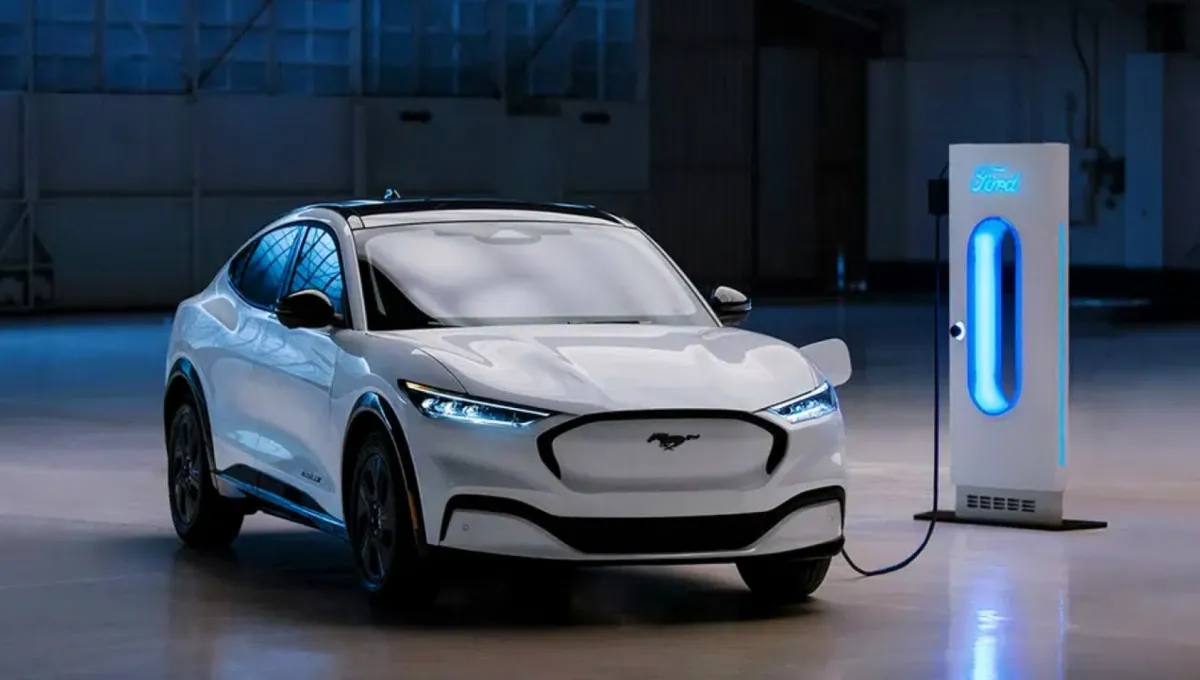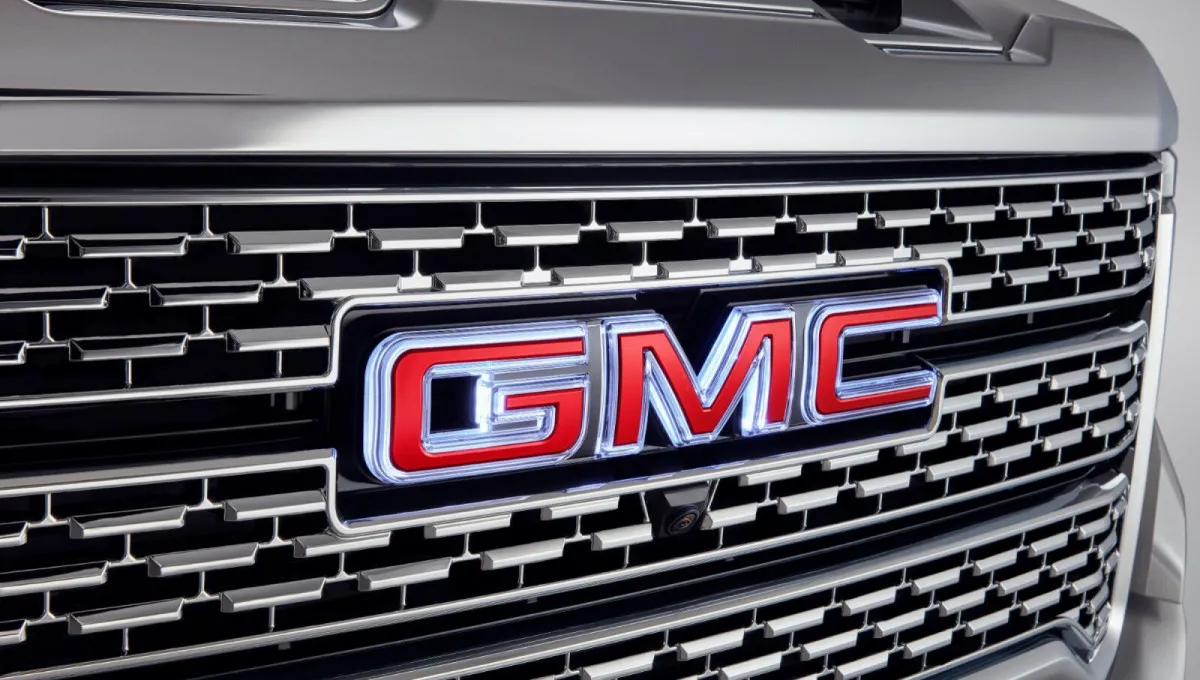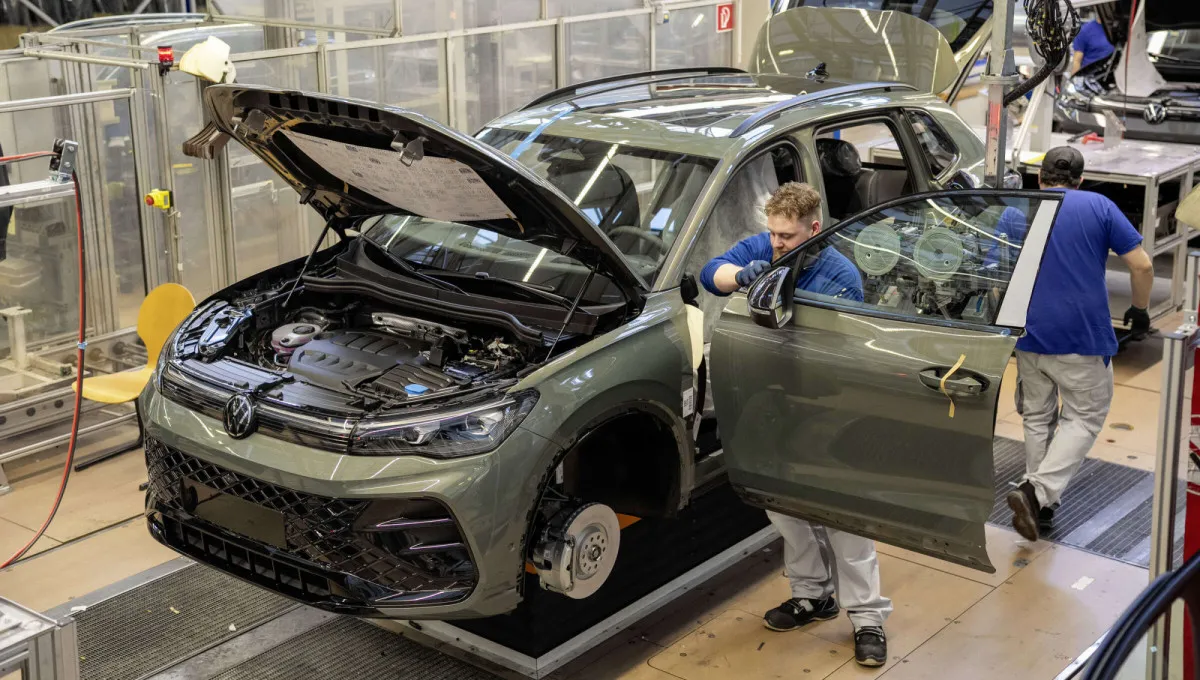Ford CEO Reveals a ‘Shocking’ Finding After Dismantling Tesla and Chinese EVs — and the ‘Brutal’ Decision It Triggered
A stunning discovery inside rival EVs forced Ford’s chief to rethink how the automaker builds its future.

Ford CEO Jim Farley said he made a “shocking” discovery after analyzing rival electric vehicles — a moment that pushed him to take bold action aimed at helping the century-old automaker stay competitive against Tesla and emerging Chinese brands.
As part of standard industry practice, Ford engineers disassembled competitor vehicles for benchmarking. What they found surprised them: the Mustang Mach-E contained roughly 1.6 kilometers (nearly one mile) more wiring than a Tesla Model 3. Similar results appeared when the team examined Chinese-made EVs.
“I was very humbled when we took apart the first Model 3 Tesla and started to take apart the Chinese vehicles. When we took them apart, it was shocking what we found,” Farley said in an upcoming episode of Office Hours: Business Edition, first reported by Business Insider.
These findings, according to Farley, convinced Ford to make significant changes. The automaker, famous for revolutionizing transportation with the Model T in 1908, has recently struggled to keep pace with the rapid innovations driving the global EV market — particularly from China.
In 2022, Farley launched a new division called Model E, designed to accelerate Ford’s electric vehicle development. While the unit reported losses of over $5 billion in 2024, Farley acknowledged during the podcast that he knew stepping into EV competition would be a “brutal business” move.
“My ethos is, take on the hardest problems as fast as you can and do it sometimes in public because you’ll solve them quicker that way,” Farley explained, highlighting the importance of transparency with shareholders about Ford’s EV strategy.
Despite ongoing challenges, U.S. EV sales have risen sharply in 2025, as consumers rushed to buy before the federal tax credit expired in late September. Data from Cox Automotive showed record-breaking EV sales in the third quarter, though Farley cautioned during Ford’s recent earnings call that electric vehicles would still represent only about 5% of the U.S. auto market in the near future.
Farley has also warned that Chinese automakers could become a serious threat. Speaking to CBS Sunday Morning last week, he described them as an “existential threat” capable of overtaking the North American market and potentially pushing domestic brands out.
Still, Ford is not backing down. In August, the company announced a $5 billion investment to improve EV production methods, including updates to its Kentucky plant that builds F-Series Super Duty trucks. Part of this plan involves developing a $30,000 electric pickup truck, aimed at average consumers, expected to launch by 2027.
“We can’t walk away from EVs, not just for the US, but if we want to be a global company, I’m not going to just cede that to the Chinese,” Farley said.
You may also be interested in the news:

American Man Tests a Tiny Electric Car From China — and Is Shocked by How It Drives
This Chinese EV is smaller than a golf cart.

Are EVs Really More Reliable? Owners Are Complaining Less About Their Electric Cars
Analysts take a closer look at how satisfied electric vehicle owners are — and which models rank highest.

General Motors Bets Big on Pickups With Millions in New Investment
Bigger, newer, and more powerful: General Motors is ramping up investment in pickup truck production. Here’s what we know so far about the company’s plans.

Volkswagen Group May Continue Job Cuts: Press Office Hints at Impact of U.S. Tariffs
Details of the new cost-cutting strategy have not yet been disclosed.

No One Saw This Coming: Three-Ton Hummer EV Outsprints Ferrari and Porsche
Yes, you read that right. The 2026 GMC Hummer EV Carbon Fiber Edition crushed five high-profile rivals at Texas Motor Speedway.